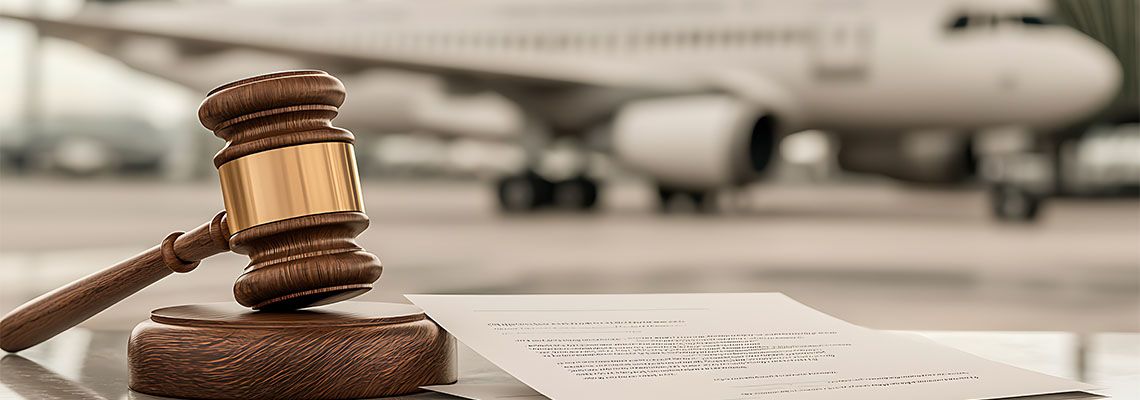Acquiring an aircraft for your business is a monumental step that can revolutionize your operations, improve efficiency, and even offer an edge in a competitive market. However, deciding whether to purchase or lease a plane is no small task.

The NTSB Trent Palmer Decision—The FAA Has Reached a Record Low for Enforcement Actions
The Problem
Trent Palmer is a pilot with a YouTube channel boasting more than 450,000 subscribers. However, his name is now widely associated with an incident that led to the suspension of his private pilot certificate in 2019. Following the incident, a nearly four-year-long legal battle ensued, holding significant implications for the aviation community.
On November 24, 2019, Palmer was flying to an unimproved dirt strip owned by a friend near Reno, Nevada, when he performed a low pass to inspect it. After the pass, Palmer decided not to land there due to safety concerns.
A neighbor in the vicinity of the strip, using security camera video, lodged a complaint with the FAA, alleging that Palmer had flown dangerously close to him and his property. The FAA cited Palmer under 14 CFR 91.13 for the careless and reckless operation of his aircraft and issued him a 210-day suspension.
After several legal proceedings, the suspension was reduced to 120 days. In April 2022, following a hearing by the NTSB, the suspension was further reduced to 60 days. Palmer appealed this decision, but in March 2023, his appeal was denied. His legal team is currently pursuing an appeal in federal court.
Palmer’s Alleged Violations
In addition to FAR 91.13(a), which prohibits operating an aircraft in a careless or reckless manner endangering life or property, the FAA also cited:
FAR 91.119(a), which establishes altitude restrictions except for takeoff or landings!
FAR 91.119(c), which sets altitude limitations over uncongested areas except for takeoffs and landings!
Palmer’s Response to the Allegations
Palmer obviously contends that he did not violate any FARs because the precautionary low pass was conducted in preparation for a landing on a remote, unimproved strip of land. Regarding flying carelessly and recklessly, Palmer stated, "FAR 91.13 careless and reckless is the FAA rubber rule; they throw that at anything."
During his 2022 hearing, Palmer explained that he was uncomfortable with his ability to locate the touchdown point and centerline of the runway, making him doubt the safety of landing on the rough strip of land. Consequently, he decided not to land for safety reasons.
In his defense, Palmer referenced the FAA publication "Off Airport Ops," which advises pilots to make multiple inspection passes over unfamiliar runways to check for “cuts in gravel, rocks, dips, bumps, etc.” It states: “Each pass should result in you becoming more comfortable with your chosen landing area. If you are becoming less comfortable, abandon the site and seek a more suitable landing area.”
Key Takeaways
Palmer should not have received any suspension, as his inspection pass did not violate any FAA regulations . Quite the opposit--the precautionary pass was a standard and necessary safety precaution recommended by the FAA.
Bottom Line
Palmer expressed his concern on his YouTube channel that pilots may now be reluctant to conduct inspection passes out of fear of facing similar violations and suspensions. In fact, with this suspension, the FAA is instructing pilots not to make safety passes over questionable terrain prior to landing on unimproved, remote strips. This is in direct and obvious opposition to other FAA guidelines, and will inevitably lead to more accidents.
NTSB’s Verdict: A Turning Point in Aviation Compliance?
Palmer and his legal team continue to challenge the suspension and the FAA's interpretation of his actions, pursuing appeals through the court system. The issue may ultimately be decided by a federal appeals court, or even the U.S. Supreme Court. Regardless of what the courts say, one thing is undeniable: the FAA has reached a record low for enforcement actions.
Attorney Bill Harger is a former professional pilot holding ATP and A&P certificates. He has been licensed since 1964. Located near Houston, Texas, his number one goal is to offer you first class legal counsel regarding aviation issues. If you as a pilot, aircraft owner or mechanic, FBO, or any other aviation business have any questions about legal issues concerning aviation-related matters, contact him at William G. Harger & Associates, PLLC.
RECENT POSTS
Corporate aircraft are valuable assets that require meticulous care to operate safely, effectively, and in compliance with regulations. For aircraft owners, operators, and aviation businesses, it's not just about ensuring the aircraft remains airworthy but also about protecting the significant investments tied to these machines.
The aviation industry is a dynamic and complex sector, where businesses often collaborate to share resources, reduce costs, and expand their reach. One of the most effective ways to achieve these goals is through a joint venture. Whether it’s a partnership between airlines to streamline operations or a collaboration between manufacturers to develop cutting-edge aircraft technology, joint ventures play a pivotal role in shaping the industry.



